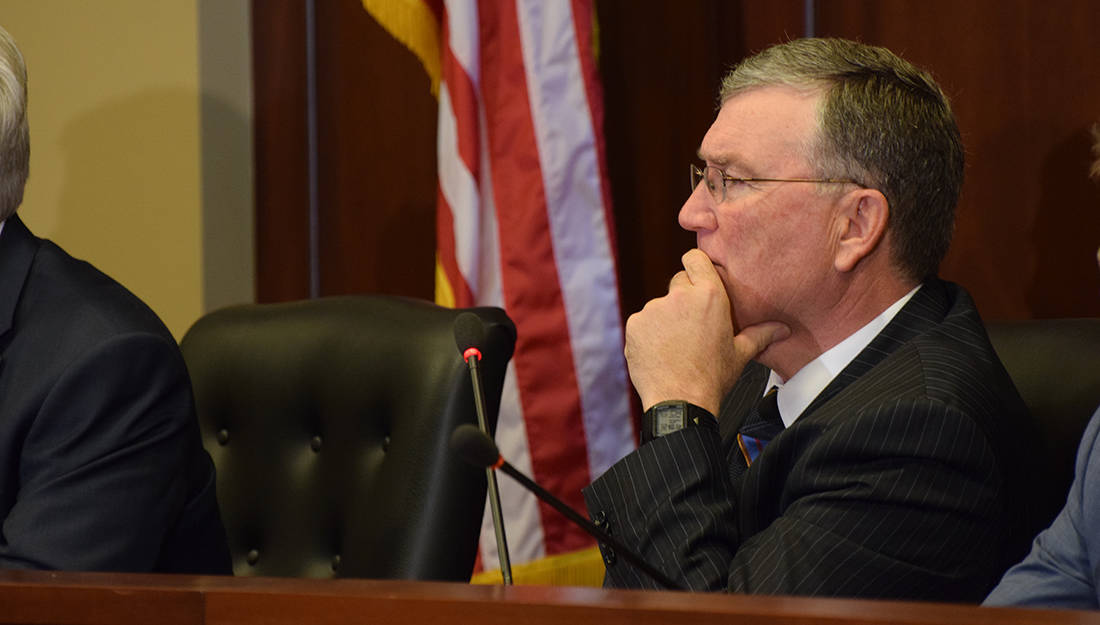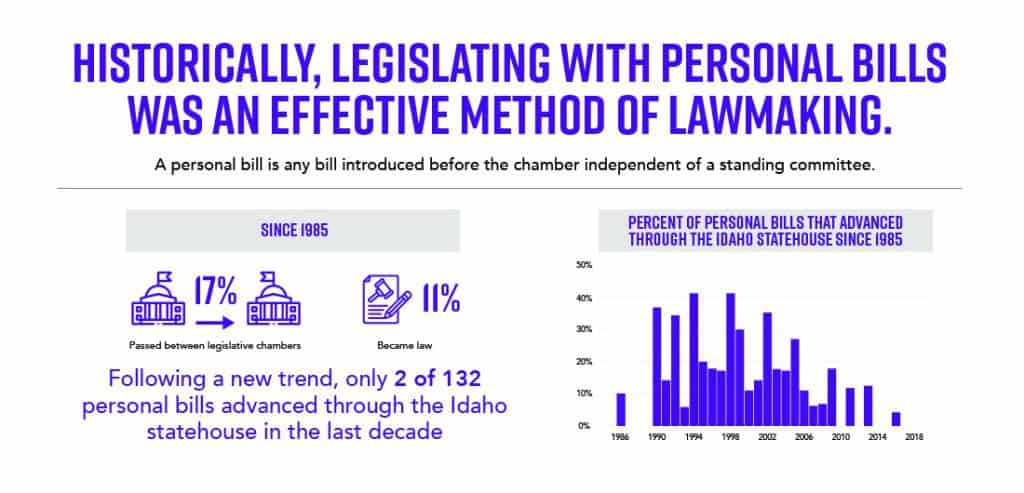


The 2022 legislative session saw the most personal bills introduced in nearly 25 years. Among these 62 bills was legislation key to furthering the conservative agenda. Yet none of them ever became law, moved between chambers, or even made it out of committee due to disfavor from the statist Republican leadership.
Thus, we have another year under House Speaker Scott Bedke and Senate Majority Leader Chuck Winder’s reign where conservative policies were deemed radical and subsequently shut out. These policies included promoting freedom in education, defending second amendment rights, guaranteeing medical privacy, repealing the grocery tax, reducing federal dependency, and curbing unbridled spending.
The problem is not that these policies are radical but that Republicans in leadership are not conservatives.
These policies are often proposed as personal bills because this type of legislation can be printed without the approval of a standing committee chairman. These bills go through an expedited process where they are automatically printed and given a bill number when they are introduced. However, the process stalls as they are sent to a leadership committee like the House Ways and Means Committee or the Senate State Affairs Committee where they are forgotten, perpetuating the adage that these committees are where “good bills go to die.”

Historically, it was not always this difficult to go around a hostile committee chairman. Once proven as an effective method of lawmaking, as much as 17% of personal bills received enough support to move between legislative bodies, and 11% advanced to become law since 1985.
Despite the prior success of using personal bills to advance legislation, only two (1.5% of all personal bills introduced) moved between chambers in the past decade. One explanation for this might be that members of these committees tend to have a significantly more statist vision for public policy in Idaho. The average Freedom Index scores for the Republican majority in the House Ways and Means and the Senate State Affairs committees are only 63% and 34%, respectively.
The scores among standing committee chairmen are not much better than those in the two leadership committees. Two-thirds of all committee chairmen have a Freedom Index Score of 70% or worse, and 42% boast a failing grade of 60% or less. With such abysmal scores among those who make unilateral decisions over what bills get a hearing, it is no wonder why conservative lawmakers would take their chances introducing a personal bill instead of going through a standing committee.
When questioned about their lack of action on conservative legislation, leadership argues that holding bills in committee without a hearing — commonly known as “drawering” bills — is not malicious but a function of moderating legislation to prevent radical ideas from occupying the Legislature’s time. Though it is true that many leftist policies were drawered in committee this session, the following pieces of legislation also went unconsidered:
It is difficult to argue that these policies are radical when many are goals featured in the 2022 Conservative Agenda. Policies like gun rights protections, grocery tax repeal, and preventing the sexualization of our children are strongly supported by Idahoans and are far from radical.
Those who call policies like these “radical” are not conservatives at all, nor are they even Republicans. However, these same lawmakers understand that they cannot win an election in Idaho without being branded with the “R” next to their name on the ballot. Furthermore, these false Republicans are aware of the positive public sentiment for these policies but cannot curb their statist tendencies enough to vote for them. Their solution to this dilemma is to hide good policies in committee where they are out of sight of constituents.
The 2022 election cycle will likely shake up the leadership in the Idaho Legislature as redistricting pits long-time incumbents against one another and House Speaker Scott Bedke vacates his seat for someone else to preside over the chamber. At this point, it is difficult to know if such changes will allow for the honest consideration of more conservative policies in the 2023 legislative session. With this being the first major post-pandemic election, constituents will be more attuned to how their lawmakers’ decisions impact their freedoms. Moving forward, this changing attitude among Idahoans will make the practice of shutting out conservative legislation and substituting it with more statist alternatives a losing strategy.

